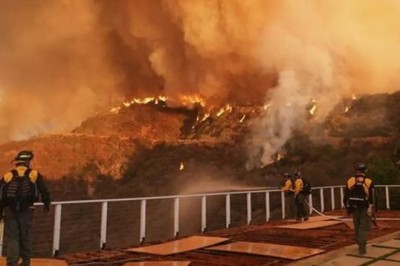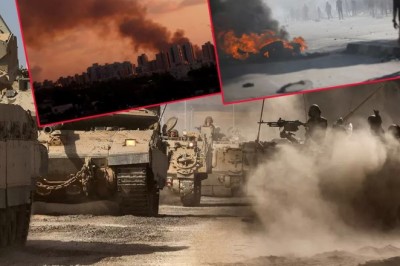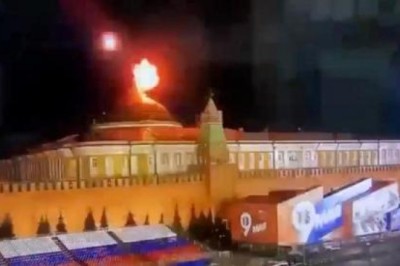views
The retaliatory attack by Iran triggered sirens in major Israeli cities and explosions were heard in the sky. The Israeli Army stated that numerous UAVs were sent from Iran towards Israel and that their defense was ready. The United States declared its support for Israel, while Jordan announced that it had shot down some of the Iranian UAVs. The United Kingdom also announced its support for Israel's defense. Jordan, Lebanon, and Iraq closed their airspace, while Egypt called for restraint from all parties.
US President Joe Biden strongly condemned Iran's attacks on Israel and conveyed a message of full support to Israeli Prime Minister Binyamin Netanyahu. Biden announced plans to gather G-7 leaders to provide a joint diplomatic response to Iran. The Israeli Security Cabinet authorized the War Cabinet to respond to Iran's attack, allowing it to make decisions without the approval of the Security Cabinet.
Saudi Arabia expressed "great concern" over the increasing military tension in the region and its dangerous repercussions. The Israeli army updated its warning after Iran's attacks, announcing that there was no need to stay in shelters. Israel called for an emergency meeting of the United Nations, citing the attack. UN Secretary-General Guterres condemned Iran's air attacks on Israel, calling for an immediate end to aggression in the region and urging all parties to maintain calm.
In Iran's capital, Tehran, a group gathered to demonstrate their support for Iran's UAV attacks on Israel. Following the attack, Iran declared that "the matter has been resolved."
These events underscore the fragility of peace and stability in the Middle East. The conflict between Iran and Israel could impact other countries in the region and have wide-ranging consequences. Therefore, it is of utmost importance for all parties to act with restraint and seek diplomatic solutions.




















Comments
0 comment